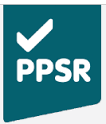Today the Queensland Government have opened another grant for small businesses. The Queensland State Government will provide matched funding of up to $5,000 to eligible businesses to engage a consultant, advisor or business coach to help establish or develop the business.
The advice must fall under one or more of the following categories:
* professional business, tax, computing, legal or financial (accounting) advice
* mentoring / coaching
* business and strategic planning
* market research and marketing strategies, including branding strategies and social media/digital strategies.
As part of the advice, the consultant will assist with developing a business action plan for the next 12 months to support and improve the business. Providing an action plan is a mandatory requirement of funding.
Eligible Criteria
To be eligible the business must:
* have a business name registered within the last 4 years
* have fewer than 20 employees at the time of applying for the grant
* have an ABN and be registered for GST
* be based in Queensland
* declare if any of the owners or directors of the business are an undischarged bankrupt or insolvent.
Important dates
Round 1 opens 3 February 2017 and closes 3 March 2017. Further rounds will be opened in July and December 2017.
All purchases approved for funding must be completed within 3 months of the date of approval.
Our comment
From 1 July 2016, small business rollovers were introduced into the tax legislation (in addition to the existing rollovers for certain types of restructures). These rollover provisions allow businesses to change their operating structure and defer any potential tax implications that may arise from the restructure. Given the availability of these rollovers and the announcement of this grant, now is a good time for businesses to review their operating structure.
Please contact us as soon as possible if you would like to discuss whether this grant may apply to your business and whether your business may benefit from structuring advice.











